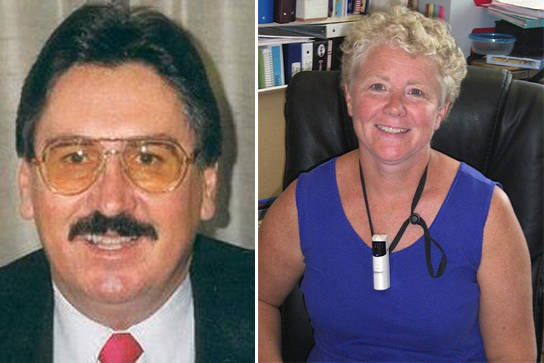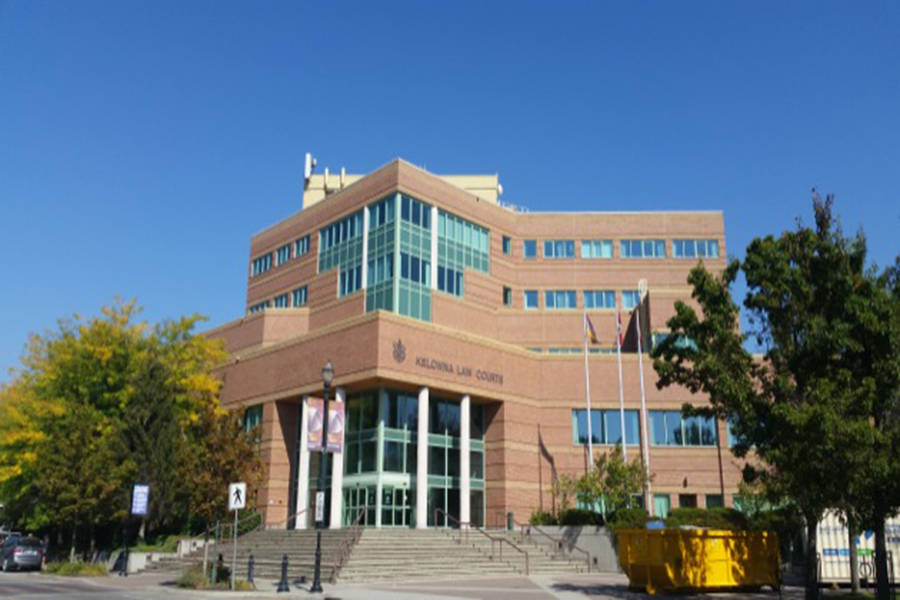With his sights set on what he believed to be his piece of a cattle ranching fortune, Peter Beckett killed his wife and plotted to get rid of anyone who made it look like more than a tragic accident, a jury heard Monday.
Evan Goulet, Crown counsel in the second-degree murder trial that started in Kelowna this week, told jurors that on Aug. 18, 2010 the New Zealand man and Laura Letts-Beckett got in their zodiac and went to a small, unnamed cove on Upper Arrow Lake, near Revelstoke. There, with nobody else around, the Alberta schoolteacher drew her last breath.
Beckett told at least one person in the aftermath that his wife fell off the zodiac, slipped underwater and he didn’t notice until it was too late, said Goulet.
“He saw her under the water flailing,” said Goulet, explaining how the story was told by Beckett. “He tried to get down to save her, but he couldn’t. He went to shore, grabbed a rock, swam back to her with the rock, and sunk down to her … to get his wife.”
At some point Beckett flagged down another boater, who tried to no avail to help revive Letts-Beckett who was lying on the shoreline. A subsequent autopsy confirmed the death was caused by drowning.
Two years later, when he was in pre-trial custody after a police investigation led to him being charged with murder, Beckett told his cellmate that version of the story and his cellmate told him, “you’re f**ked.”
That’s when, according to Goulet, Beckett tried to pay the man to “physically harm potential witnesses in the trial.”
“When Mr. Beckett was trying to hire (the cellmate) to harm potential witnesses he would talk about how the two of them could live comfortably on the money Mr. Beckett was going to get from his wife’s death,” Goulet told jurors.
Letts-Beckett had been a school teacher, and shared ownership of a condo with her husband. She had little else in her estate.
Beckett, however, had taken out an accidental death insurance policy on both himself and his wife months before her death. That was discovered by police when they were investigating the case, said Goulet.
And Letts-Beckett’s parents are “wealthy, elderly cattle ranchers from Alberta,” said Goulet.
The five-woman, seven-man jury will hear a phone call recorded after Letts-Beckett’s death, where Beckett can be heard talking about the inheritance and his willingness to go to court to get what he said was owed to him.
Supreme Court Justice Alison Beames told jurors that the scenario described in opening statements was a more of a road map, than evidence. To make its case, Crown counsel will introduce 19 witnesses.
The first of those witnesses to testify was Alberta lawyer Raymond Bruce Barlow.
He told jurors that Beckett went to his office and asked for copies of Letts-Beckett’s will — one drawn up in the mid ’90s and another completed in 2007. Neither named Beckett as a beneficiary or executor.
When he momentarily left his office following the discussion, Barlow said Beckett rifled through his files.
Barlow then kicked him out and said they wouldn’t be dealing with him without a lawyer.
Crown is expected to complete presentation of its evidence in a week and a half.




